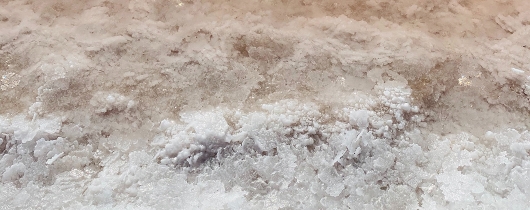Salt and Light | Sal y Luz

2 Corinthians 1:18-22; Matthew 5:13-16
In the era of the New Evangelization, we have heard the call to be salt and light so many times that we may be tempted to treat it like a cliché or take it for granted. In addition, our modern relationship with salt and light is different and sometimes more ambivalent than it was for people in Jesus’ time.
We are counseled to avoid salt to protect against high blood pressure. If we live in the Midwest, we spend half the winter thanking God for road salt and the other half cursing it for what it does to our cars and trucks. Most of us can get light on demand with the flip of a switch.
But in Jesus’ day and still in many parts of the world, salt means life. It not only enhances flavors, but it also keeps food from spoiling. In places where people sweat a lot and eat fewer processed foods, it can also be an important nutrient. Where people do not have regular access electricity, getting light can take more work, but it is no less essential. Without light, we can lose our way, stumble, and fall.
Light and salt are still essential to help us live well in this world. We are still essential to carry the gospel to others in ways that are real. Jesus, God’s ultimate “yes” to our world, was the tangible, living sign of God’s love for us and the promise of our life in God. When we live as he taught, we enhance and help reveal that love. - jc
-----------------------------------------------------------------------------------------------------------
2 Corintios 1:18-22; Mateo 5:13-16
En la era de la Nueva Evangelización, hemos escuchado tantas veces la llamada a ser sal y luz que podemos tener la tentación de tratarla como un cliché o darla por sentada. Además, nuestra relación moderna con la sal y la luz es diferente y a veces más ambivalente de lo que era para la gente de la época de Jesús.
Se nos aconseja evitar la sal para protegernos de la presión arterial alta. Si vivimos en el Medio Oeste, pasamos la mitad del invierno agradeciendo a Dios por la sal de las carreteras y la otra mitad maldiciéndola por lo que hace a nuestros coches y camiones. La mayoría de nosotros puede obtener luz a demanda con sólo pulsar un interruptor.
Pero en tiempos de Jesús, y todavía en muchas partes del mundo, la sal significa vida. No sólo realza los sabores, sino que evita que los alimentos se estropeen. En lugares donde la gente suda mucho y come menos alimentos procesados, también puede ser un nutriente importante. Donde la gente no tiene acceso regular a la electricidad, conseguir luz puede costar más trabajo, pero no es menos esencial. Sin luz, podemos perdernos, tropezar y caer.
La luz y la sal siguen siendo esenciales para ayudarnos a vivir bien en este mundo. Seguimos siendo esenciales para llevar el Evangelio a los demás de forma real. Jesús, el último "sí" de Dios a nuestro mundo, fue el signo tangible y vivo del amor de Dios por nosotros y la promesa de nuestra vida en Dios. Cuando vivimos como él enseñó, realzamos y ayudamos a revelar ese amor. - jc




